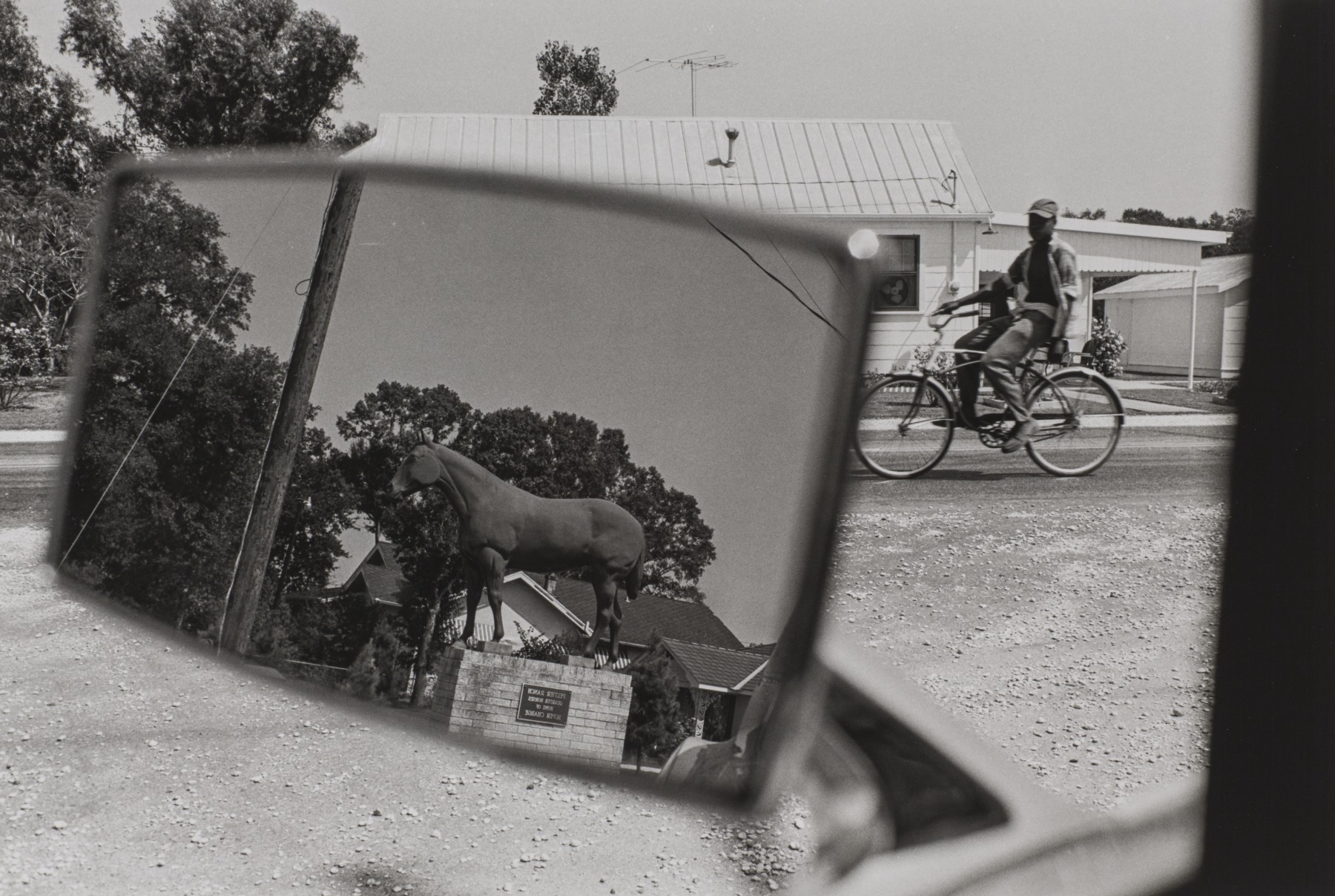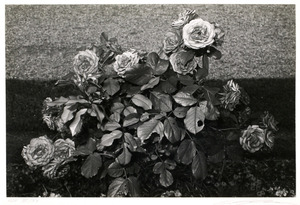Lee Friedlander

Lee Friedlander is a major photographer that helped open people's minds to new ideas and new ways of executing photography. After studying many of his photos, I have noticed a few distinguishing characteristics that arise commonly: one being the effortlessness that seems to be behind the pictures. At a first glance, the photos seem almost careless, but as I look closer I can see the way Friedlander truly understands what the composition of his photo should be. He positions himself in ways that create contrast across the span of the photos, allowing for a lot of detail and more things for the viewer to observe. Even by leaving the corner of an obstacle in the view of the photo, there is a sort of comfort knowing the pictures aren't 'perfect'. These obstructions are often unnoticed until reading the picture for a few minutes.

Another theme of Friedlander's photos are self-portraits, or even including some sign of his existence in the picture. When thinking about standard photography, the photographer is expected to hide their identity as well as possible, always finding the angles that removes their shadows because their focus is on the subject. What Friedlander did instead was almost encourage a subtle or dramatic presence of himself in his photos. In my opinion, this is beautiful. By leaving himself in the photos, he creates a sort of connection to them, and on his way up this made him stand out opposed to other photographers.
The last thing I admire about Lee Friedlander's work is the variety of subject matters he found interesting and photographed. After noticing this, I found an article that talked about why and how he did this. (I cannot find the article to attach) In short, Friedlander says he captures anything that interests him, and once he has a lot of a certain subject, he makes a pile. He does not look at the images until he feels he needs to, which could be years later. I found this very inspirational, as he also said this system eliminates the instant gratification and short-lived pleasure. He instead likes to capture something and find the beauty in it years later. I have found myself getting anxious to see the photos on my film camera, but after reading Friedlander's take, I now find it peaceful that I don't have to worry if the picture will turn out now.

Comments
Post a Comment